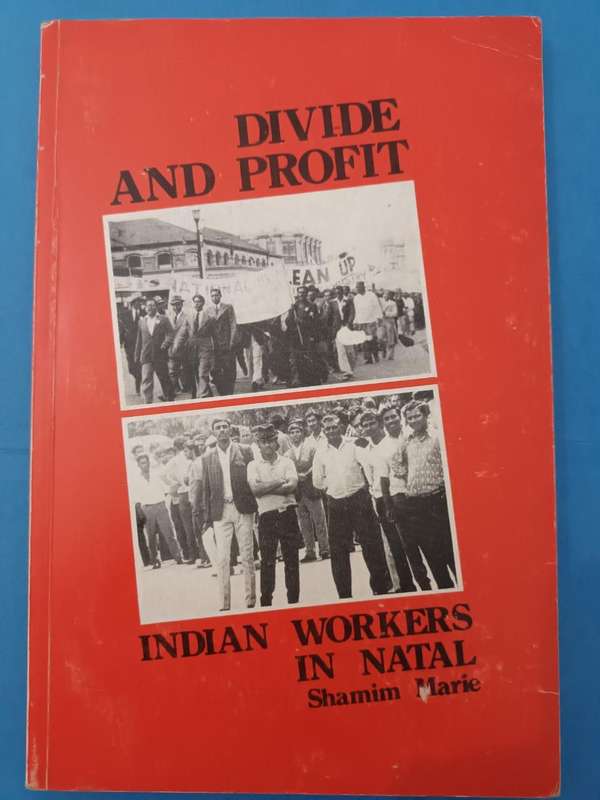
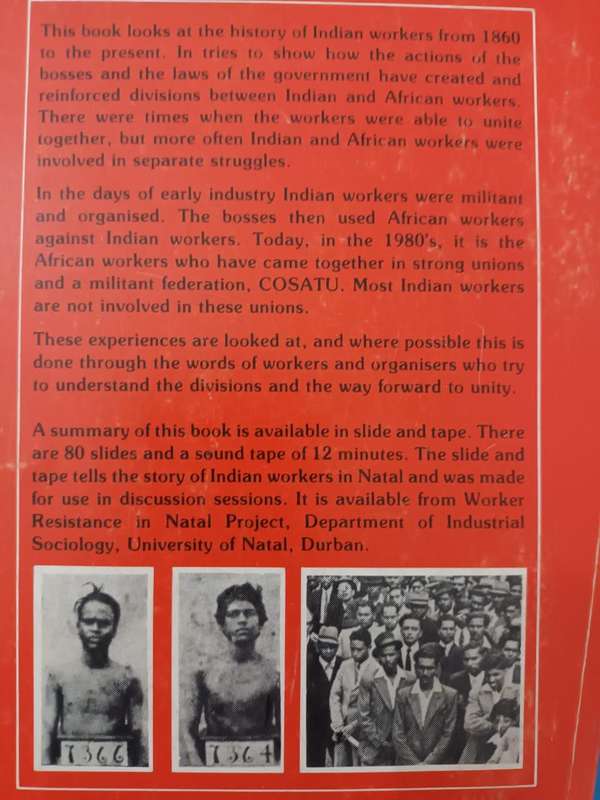
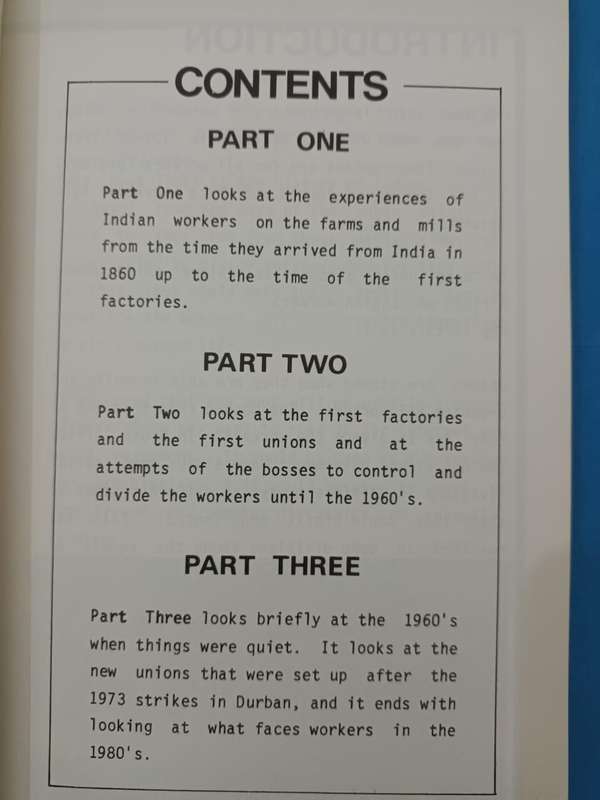
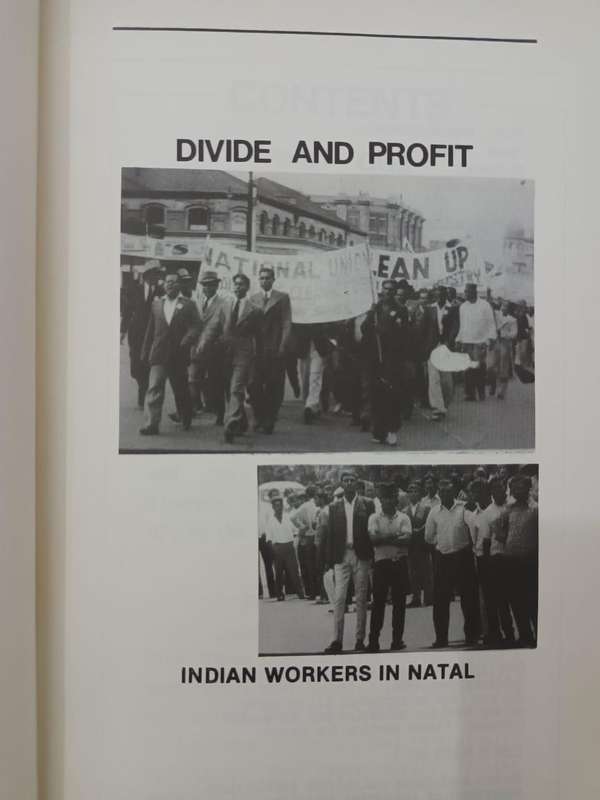
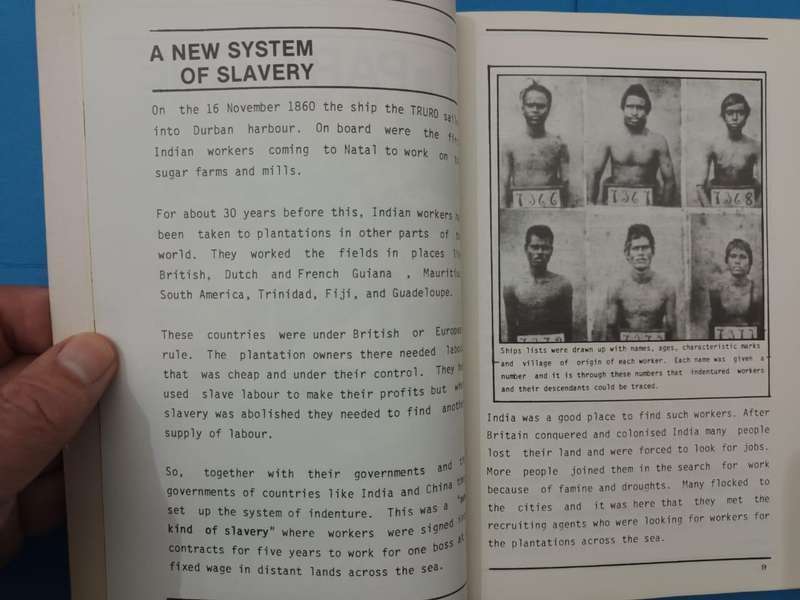
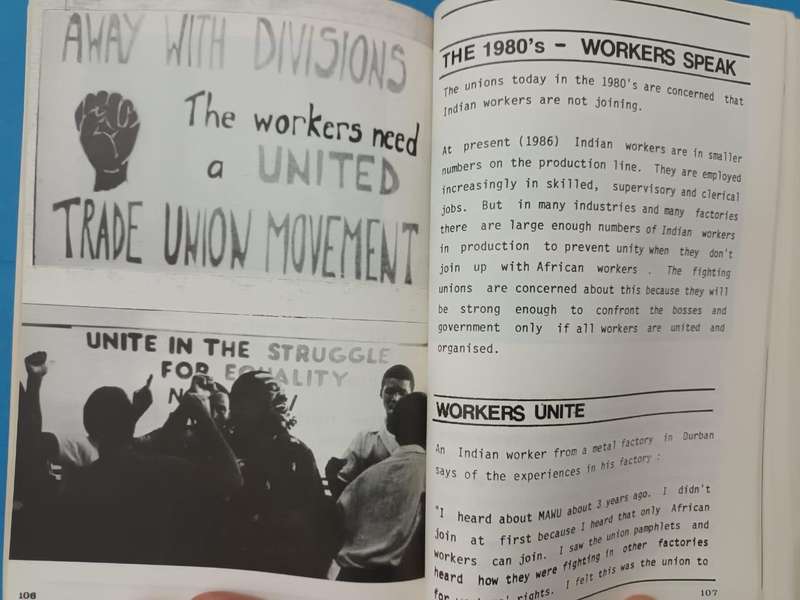
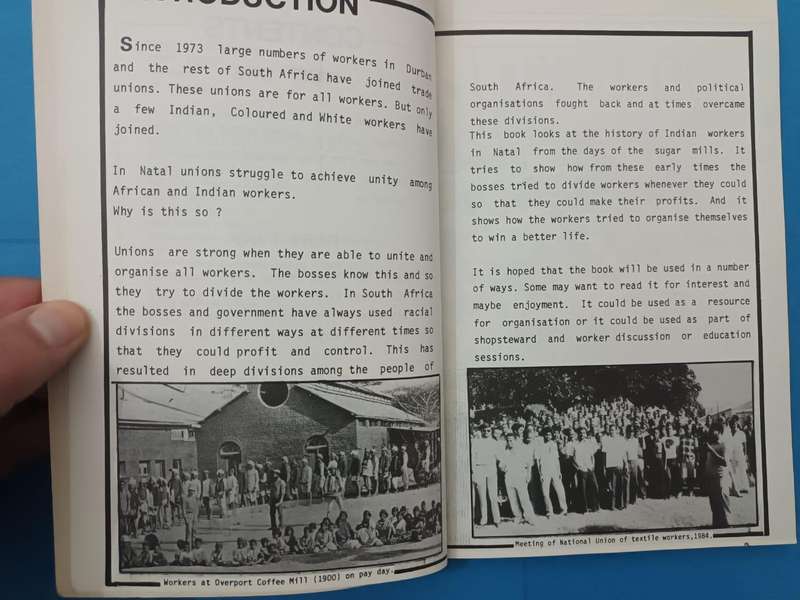
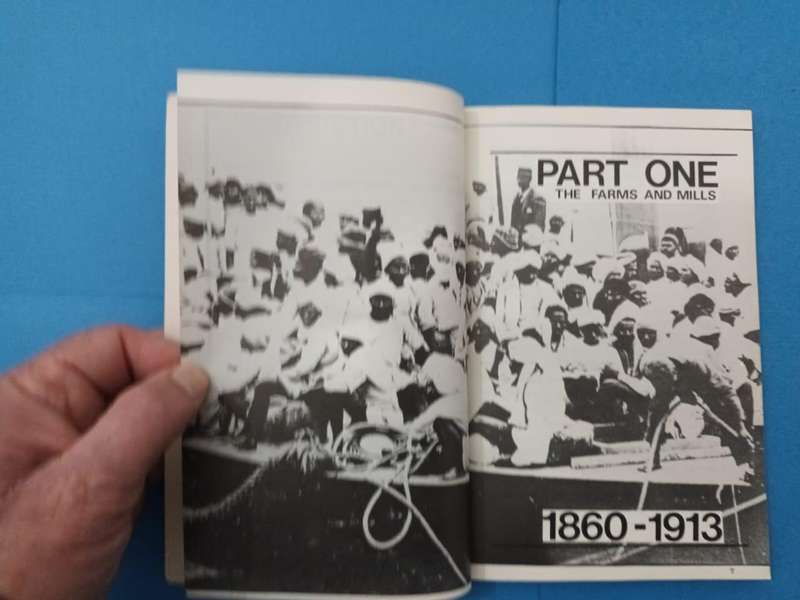





Divide and Profit: Indian Workers in Natal
Check my rate
| Main centres: | 1-3 business days |
| Regional areas: | 3-4 business days |
| Remote areas: | 3-5 business days |













| Main centres: | 1-3 business days |
| Regional areas: | 3-4 business days |
| Remote areas: | 3-5 business days |
Shamim Marie, Divide and Profit: Indian Workers in Natal. Durban: Worker Resistance and Culture Publications, 1986.
Slim paperback, card wraps, 133 pages, illustrated.
Covers scuffed. Good condition.
'This book looks at the history of Indian workers from 1860 to the present. In tries to show how the actions of the bosses and the laws of the government have created and reinforced divisions between Indian and African workers. There were times when the workers were able to unite together, but more often Indian and African workers were involved in separate struggles.
'In the days of early industry Indian workers were militant and organised. The bosses then used African workers against Indian workers. Today, in the 1980's, it is the African workers who have come together in strong unions and a militant federation, COSATU. Most Indian workers are not involved in these unions.
'These experiences are looked at, and where possible this is done through the words of workers and organisers who try to understand the divisions and the way forward to unity.'
'CONTENTS
'PART ONE
Part One looks at the experiences of Indian workers on the farms and mills from the time they arrived from India in 1860 up to the time of the first factories.
'PART TWO
Part Two looks at the first factories and the first unions and at the attempts of the bosses to control and divide the workers until the 1960's.
'PART THREE
Part Three looks briefly at the 1960's when things were quiet. It looks at the new unions that were set up after the 1973 strikes in Durban, and it ends with looking at what faces workers in the 1980's.'
Keywords: Labour. Trade unionism. Apartheid. Racial discrimination. Racism.